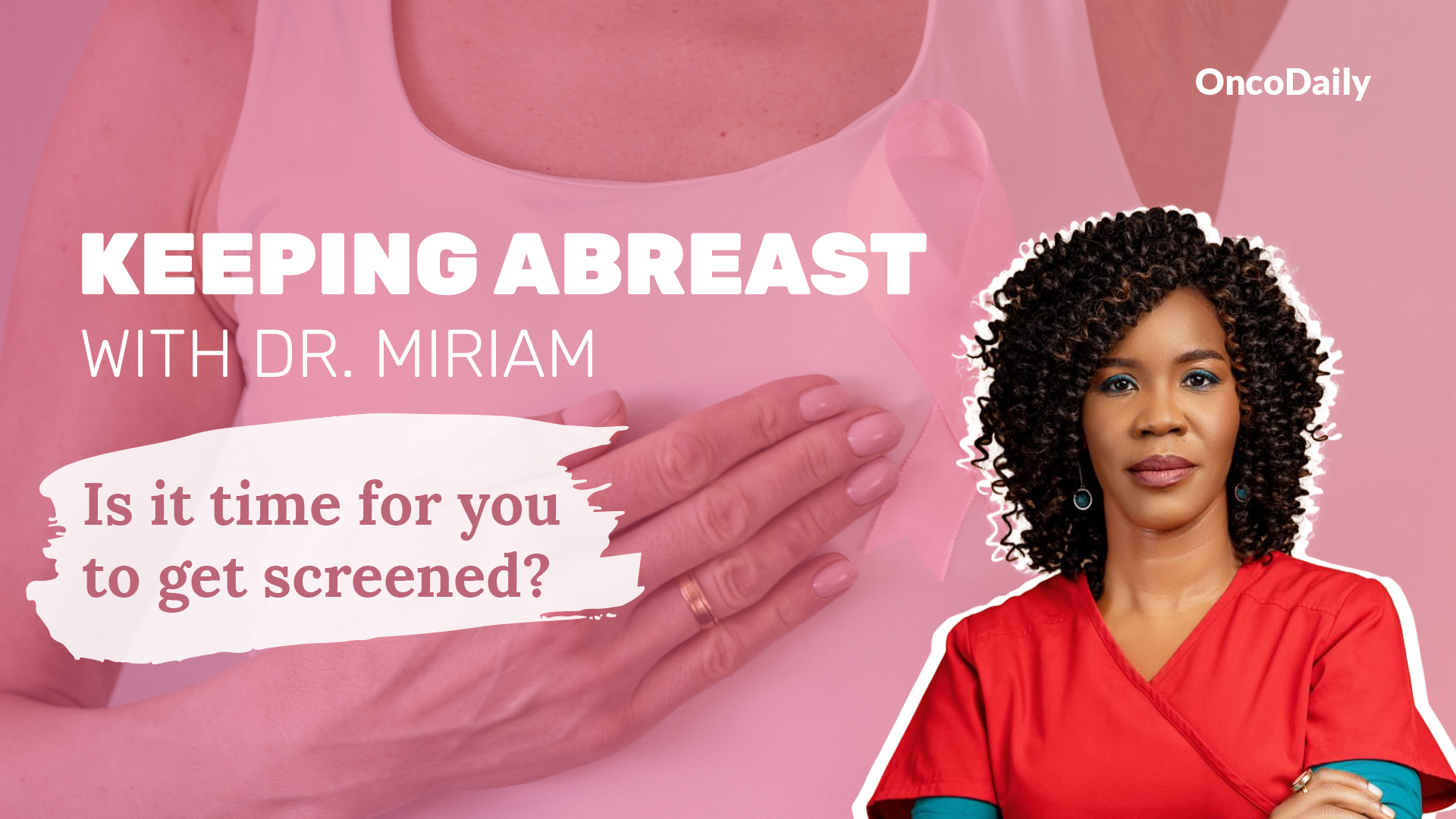Miriam Mutebi, Breast Surgical Oncologist and Assistant Professor in the Department of Surgery at the Aga Khan University Hospital, shared a post on LinkedIn:
“Have you been wondering if it’s time for you to get screened for breast cancer?
You’re not alone! This is a common question, usually at a first appointment with patients I see at the clinic. The answer is crucial for your health.
But first a Disclaimer:
Screening guidelines often vary by region, reflecting differences in the average age of breast cancer diagnosis. For example, many Western countries begin screening at a later age due to their demographic profiles. In Africa however, patients are often diagnosed 10–15 years earlier than their Western counterparts, prompting the adoption of guidelines that recommend starting screening, where applicable, at a younger age.
1. Over 40? Time to Get Screened:
Yes. If you’re 40 or older, make breast cancer screening a habit. Think of it as an annual health check-up for your breasts. The earlier we as your health providers, catch any changes, the better our chances of taking action before things get serious.
Remember, early detection saves lives! Screening could involve getting a mammogram every 1-2 years. It should be complemented by a clinical breast exam done by a qualified health care worker (HCW).
2. Under 40? Consider Your Family History:
Now, if you’re under 40 but have a family history of breast cancer, don’t wait until you hit that milestone birthday. Talk to your doctor about starting screenings earlier. Family history can increase your risk, so staying proactive is key! Most guidelines recommend getting a clinical breast exam every 1-3 years between the ages of 30-40, especially in the absence of a formal population-based mammography screening. Clinicians can help you determine your risk; more in a later post.
Know the Symptoms and Changes:
Be sure to keep an eye out for any unusual changes in your breasts, like lumps, discharge, or persistent pain. If something feels off reach out to your health provider. Breast cancer screenings are about your empowerment. Knowing when to screen gives you control over your health journey.”

More posts featuring Miriam Mutebi.
Miriam Mutebi is a Breast Surgical Oncologist and Assistant Professor in the Department of Surgery at the Aga Khan University Hospital in Nairobi, Kenya. She is the President of the African Organization for Research and Training in Cancer (AORTIC), and past president for Kenya Society of Hematology and Oncology (KESHO) and on the Board of Directors of the Union for International Cancer Control (UICC).
She is the co-founder of the Pan African Women’s Association of Surgeons and is part of the Kenya Association of Women Surgeons. She is an avid supporter for the education and support for women, especially in surgery and she aims to provide mentorship for women in surgery and to improve women’s health and surgical care in Africa. She is currently pursuing a pilot’s license in order to extend breast care services to marginalized areas.
